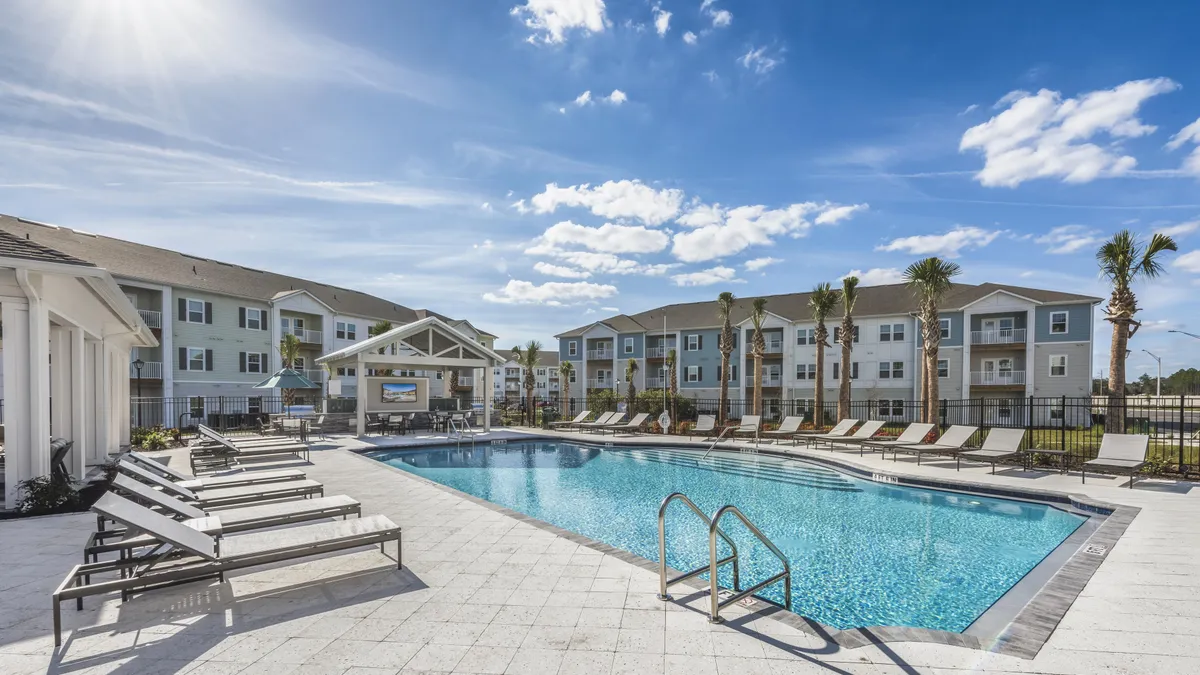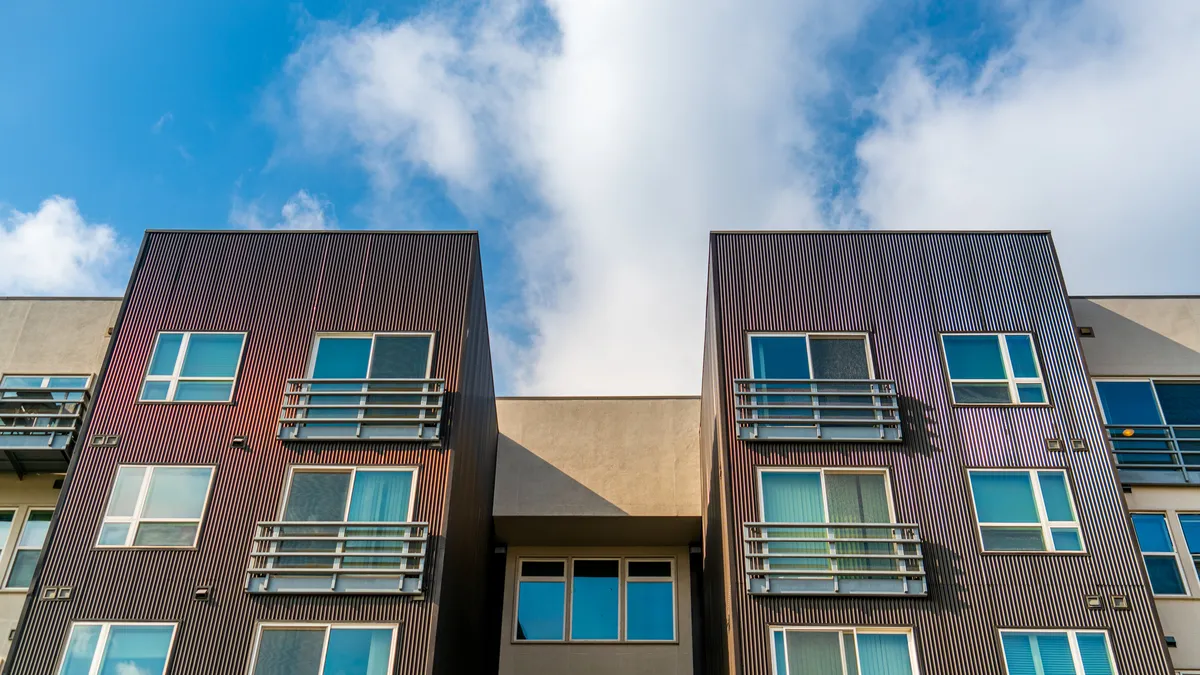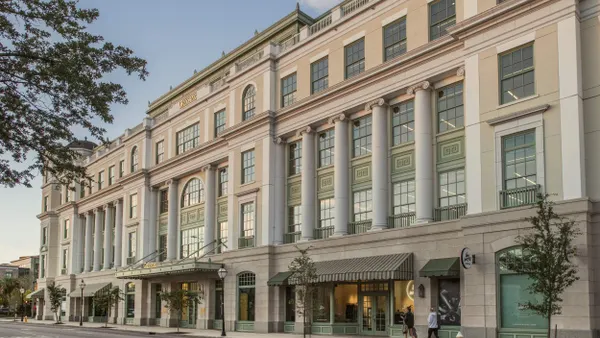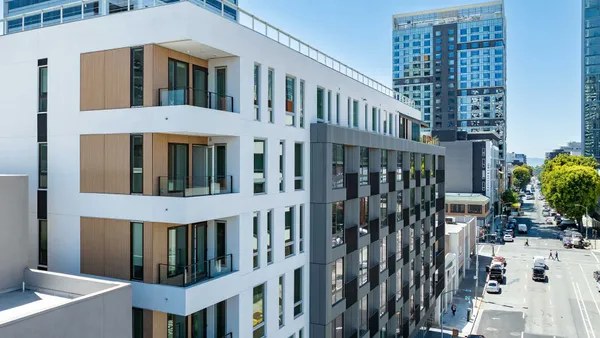Over the past couple of years, few apartment owners have experienced the growth that American Landmark Apartments has.
The Tampa-based apartment owner and manager purchased more than 10,000 units between 2018 and 2020, placing it at No. 33 on the 2021 National Multifamily Housing Council Top 50 list with 33,000 total units.
American Landmark hasn't slowed down in 2022. In January, it purchased a 240-unit community in the Charlotte suburb of Concord, North Carolina.
Here, CEO Joe Lubeck talked with Multifamily Dive about how he finds deals, the enormous amount of competition chasing apartments and whether the market is overheated.
This article has been edited for brevity and clarity.
MULTIFAMILY DIVE: There is a lot of talk about how competitive the market is. How have you been able to find acquisition opportunities?
JOE LUBECK: It is difficult out there, and it's overpriced. But fortunately, we have very good connections. And a lot of people show their deals to us. We continue to pick our spots. Most of what we're buying is what I would call special circumstance [deals].
What sort of circumstances surround those acquisitions?
People have a tax problem. They have to close within a limited timeframe, or they have deals that fell out of contract. We've had a couple where people have had financial problems elsewhere in their portfolio, like a guy who owns apartments and hotels. He's having trouble in his hotels, for example. And then some we've just bought directly.
Are the prices people are paying right now concerning you in any way?
I think the market is overheated. And particularly in the face of inflation, I'm concerned. I don't think the rent growth is going to keep up with inflation and cost. So yes, I think people are probably overpaying at this point, and the market is a little overheated. We're just being very, very cautious.
How does the situation compare to the mid-2000s?
This is different than 2006 through 2008. This time it is just overheated with too much equity chasing the market, as opposed to the global financial crisis. Here, the fundamental bank structure is still strong. The problem is that there is too much equity. And the market is going extremely well. But this is when it's time to be extra careful.
Do you think those groups buying at elevated prices now could run into problems?
As I see it, the real issue is going to be not with those who may have paid too much because the markets will still be good, at least in the Sunbelt. I don't see a lot of defaulting happening. Where there will be issues are people who are both overpaid and overleveraged. When those two things happen, you get into a crisis.
When you're out there looking at deals, are you seeing new players come into the apartment space in the Sunbelt?
Absolutely. We're seeing many, many, many [new buyers].
Where are they coming from?
Many investors who used to invest in their home states are now coming to the Sunbelt. It's a combination of everything [attracting them to the Sunbelt]. But clearly, job and population growth are strongest in the Sunbelt.
What debt sources are out there for these buyers? And which ones are you taking advantage of?
The good news is there is a lot of debt. Fannie [Mae] and Freddie [Mac] are still there. The FHA [Federal Housing Administration] is still there. But, just as importantly, we've got [debt] funds now, which are very aggressive.
You're also seeing a resurgence of CMBS [commercial mortgage-backed securities] and a lot of bank balance sheet [lending]. So there are a lot of choices out there for well-qualified borrowers, which is nice.
We have low leverage. Our average portfolio leverage now is under 60%. We think that's a safe place to be.
Click here to sign up to receive multifamily and apartment news like this article in your inbox every weekday.











